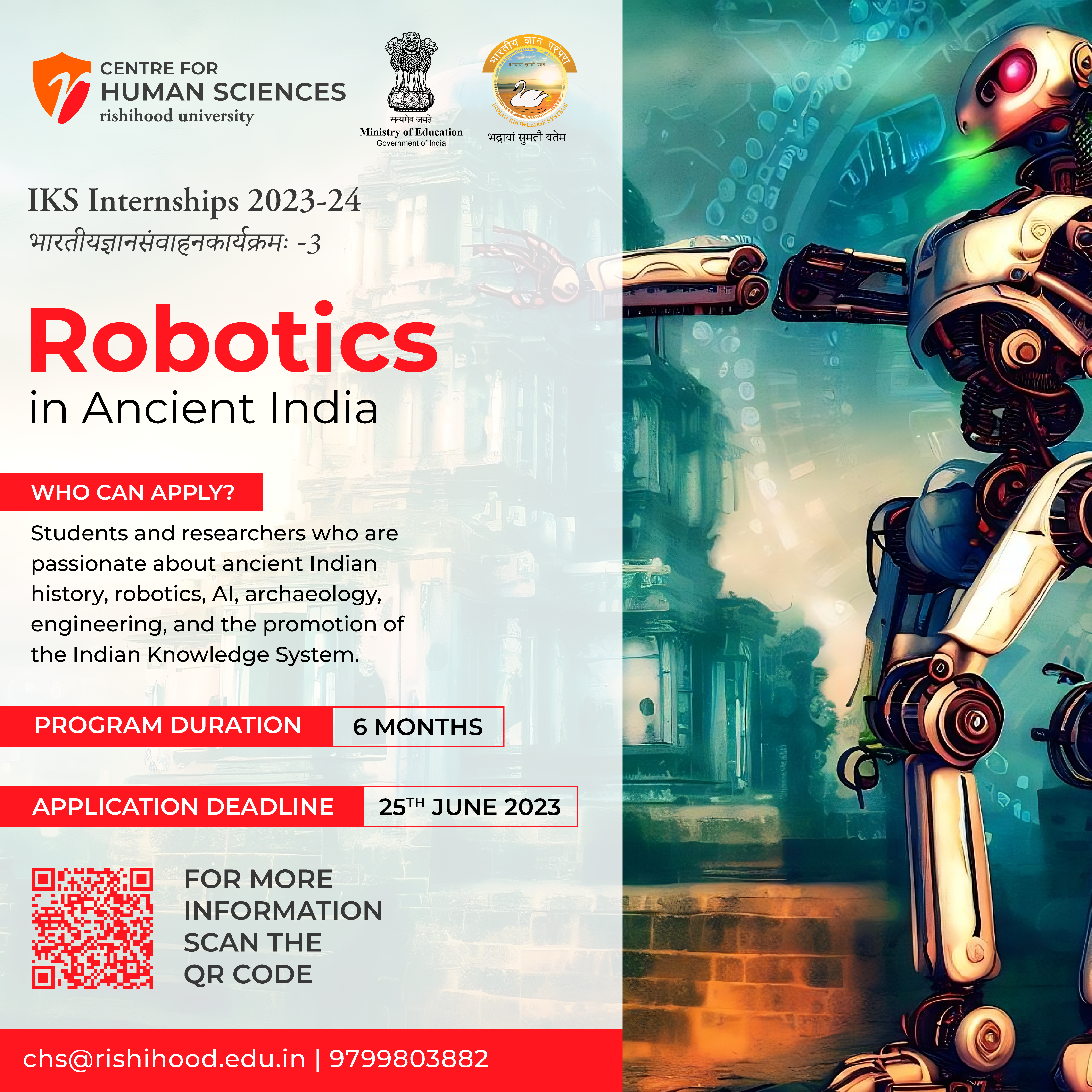Join us on an extraordinary journey as we delve into the documentation, cultural significance, social impact, and technological advancements of robotics during ancient times in the Indian subcontinent. This groundbreaking project aims to shed light on the existence and utilization of robots imbued with artificial intelligence during that epoch, as depicted in ancient texts and historical references.
This project has been sponsored to the Centre for Human Sciences, Rishihood University, by the IKS Division of AICTE, Ministry of Education, Government of India, under IKS Internships Program 2023-24 (भारतीयज्ञानसंवाहनकार्यक्रमः -3)


